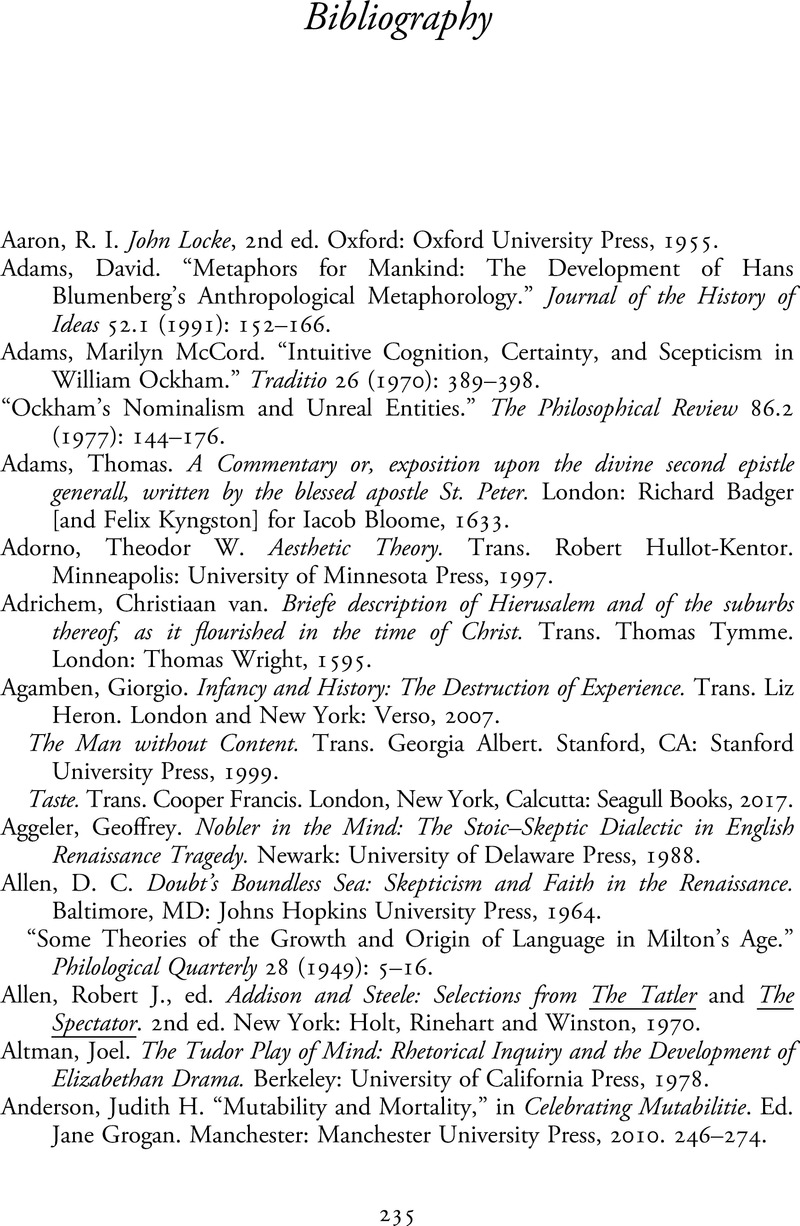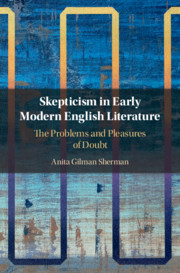Book contents
- Skepticism in Early Modern English Literature
- Skepticism in Early Modern English Literature
- Copyright page
- Dedication
- Contents
- Acknowledgments
- Introduction
- Chapter 1 Visionary, Interrupted
- Chapter 2 Fantasies of Private Language
- Chapter 3 Conformity / Neutrality in Lord Herbert of Cherbury
- Chapter 4 The Skeptical Fancies of Margaret Cavendish
- Chapter 5 The Enchantments of Andrew Marvell
- Afterword
- Bibliography
- Index
- References
Bibliography
Published online by Cambridge University Press: 16 April 2021
- Skepticism in Early Modern English Literature
- Skepticism in Early Modern English Literature
- Copyright page
- Dedication
- Contents
- Acknowledgments
- Introduction
- Chapter 1 Visionary, Interrupted
- Chapter 2 Fantasies of Private Language
- Chapter 3 Conformity / Neutrality in Lord Herbert of Cherbury
- Chapter 4 The Skeptical Fancies of Margaret Cavendish
- Chapter 5 The Enchantments of Andrew Marvell
- Afterword
- Bibliography
- Index
- References
Summary

- Type
- Chapter
- Information
- Skepticism in Early Modern English LiteratureThe Problems and Pleasures of Doubt, pp. 235 - 262Publisher: Cambridge University PressPrint publication year: 2021



